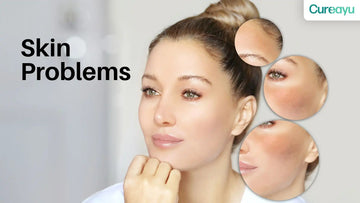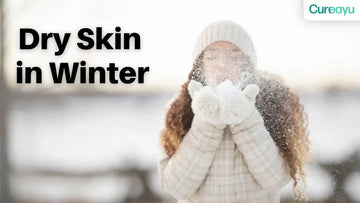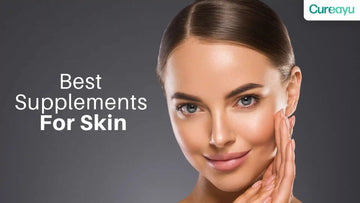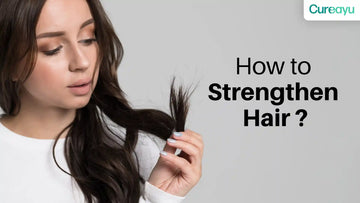Acne is a common skin condition that affects millions of people worldwide. While it's often associated with the turbulent teenage years, acne can persist or even emerge in adulthood. Understanding what causes acne is the first step in managing and treating this condition effectively.
Many factors can contribute to the development of acne, from hormonal changes to lifestyle choices. By gaining insight into these causes and recognizing the symptoms, individuals can take proactive steps to achieve clearer, healthier skin. This blog delves into the various causes of acne, symptoms to look out for, and both home remedies and professional treatments to keep acne at bay.
What Is Acne
Acne is a skin condition that occurs when hair follicles become clogged with oil and dead skin cells. It often results in pimples, blackheads, and cysts appearing on the face, neck, back, and shoulders. Acne faces challenges not only from a physical perspective but also in terms of self-esteem and confidence. The condition can range from mild to severe, with some individuals experiencing painful cystic acne. Acne is most prevalent during adolescence due to hormonal changes but can affect anyone at any age. Genetics, stress, diet, and skincare routines can all influence the severity and frequency of acne breakouts.
Symptoms Of Acne
- Whiteheads: Small, white bumps that form when pores are clogged with oil and dead skin cells.
- Blackheads: Open clogged pores that turn dark due to oxidation.
- Papules: Small red or pink bumps that can be tender to the touch.
- Pustules: Red, inflamed bumps with a white or yellow center filled with pus.
- Nodules: Large, painful lumps beneath the surface of the skin.
- Cysts: Deep, painful, pus-filled lumps that can cause scarring.
What Causes Acne
- Hormonal Changes: Fluctuations in hormones, particularly during puberty, menstruation, pregnancy, and menopause, can increase oil production in the skin, leading to acne.
- Diet: Certain foods, especially those high in sugar and dairy, may trigger or worsen acne in some individuals.
- Stress: Stress can increase the production of cortisol, a hormone that can lead to more oil production and acne flare-ups.
- Genetics: A family history of acne can increase the likelihood of developing the condition.
- Medications: Some medications, including steroids and lithium, can cause acne as a side effect.
- Skincare Products: Using products that are too oily or not suitable for your skin type can clog pores and cause acne.
- Environmental Factors: Pollution and exposure to greasy or oily substances can contribute to acne development.
Home Remedies: How To Remove Acne From Faces
- Tea Tree Oil: Known for its anti-inflammatory and antimicrobial properties, tea tree oil can help reduce the severity of acne.
- Honey and Cinnamon Mask: Both honey and cinnamon have antibacterial properties. Together, they can help fight acne-causing bacteria.
- Aloe Vera: Aloe vera soothes the skin and has anti-inflammatory properties, which can help reduce acne.
- Green Tea: Applying green tea topically can help reduce inflammation and fight bacteria.
- Apple Cider Vinegar: The acids in apple cider vinegar can help reduce the appearance of acne scars and prevent new breakouts.
- Zinc Supplements: Zinc is an essential mineral that can help reduce inflammation and decrease oil production in the skin.
Acne Solution
- Cleanse Regularly: Use a gentle cleanser to wash your face twice daily to remove excess oil, dirt, and sweat.
- Moisturize: Keep your skin hydrated with a non-comedogenic moisturizer to prevent excess oil production.
- Avoid Touching Your Face: Touching your face can transfer oils and bacteria, which can exacerbate acne.
- Use Sunscreen: Protect your skin from harmful UV rays that can worsen acne and cause scarring.
- Stay Hydrated: Drinking plenty of water helps to maintain skin hydration and overall health.
- Healthy Diet: Incorporate foods rich in antioxidants, vitamins, and minerals to support skin health.
Best Treatment of Acne And Pimples
Managing acne faces many challenges, but with the right treatments, clearer skin is achievable. Effective treatment options include both over-the-counter and prescription solutions.
- Topical Retinoids: These are derivatives of Vitamin A that help unclog pores and reduce inflammation.
- Benzoyl Peroxide: This topical treatment helps to kill acne-causing bacteria and reduce oil production.
- Salicylic Acid: An exfoliant that helps to unclog pores and reduce swelling and redness.
- Oral Medications: For severe cases, doctors may prescribe antibiotics or hormonal treatments like birth control pills to manage acne.
- Professional Treatments: Procedures such as chemical peels, laser therapy, and drainage and extraction can help treat severe acne and reduce scarring.
Conclusion
Understanding what causes acne is essential for effective prevention and treatment. Acne is a multifaceted condition influenced by hormones, diet, stress, genetics, and environmental factors. Recognizing the symptoms and implementing proper skincare routines and treatments can significantly improve skin health. While home remedies can offer relief, sometimes professional treatments are necessary for more severe cases. By adopting a holistic approach that includes lifestyle changes and medical interventions, achieving clear, healthy skin is within reach. Remember, consistency and patience are key in the journey towards acne-free skin.












